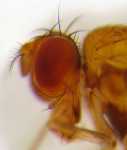Author Interviews, Weight Research / 07.11.2021
Study of Fruit Flies Identifies Novel Human Obesity Genes
MedicalResearch.com Interview with:
Neha Agrawal PhD
Department of Physiology
Development and Neuroscience
University of Cambridge
MedicalResearch.com: What is the background for this study?
Response: Obesity levels are rising rapidly around the world and are a major risk factor for diseases such as Type 2 diabetes, cancers and recently, COVID-19. New strategies to understand obesity are thus needed to prevent and treat obesity and associated disease.
Genetic studies in humans have shown that 40-70% of variation in body weight depends on our genes. Therefore, identifying genes linked to obesity and understanding their function can be a useful way to both understand how we gain weight and identify potential targets for weight loss therapy. However, human genetic obesity studies face significant limitations in identifying causal obesity genes and understanding their relationship to weight gain in human patients.
The model system Drosophila melanogaster (Fruit flies) has provided vital insights into fundamental biology and human diseases for over a century. It is a powerful genetic model with well conserved metabolic pathways. Fruit flies also gain weight when fed a high-sugar or high-fat diet and develop heart disease and diabetes. We therefore decided to use fruit flies to identify novel obesity genes and their site of action in the body. (more…)




